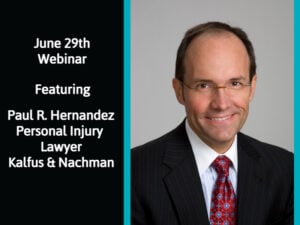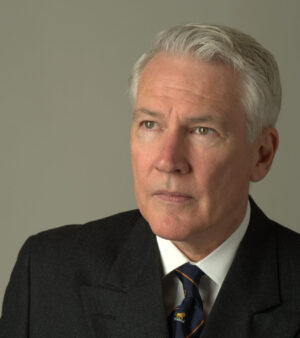
On June 9, the Senate Committee on Commerce, Science, and Transportation hosted a three-hour hearing that was supposed to focus on college athlete name, image, and likeness (NIL) rights but discussed everything from NCAA concussion protocols (or the lack thereof) to the NCAA’s position on transgender participation in college sports. While there were moments that provided hope for Congress acting soon on providing college athletes across the country with important NIL rights, the hearing was underwhelming and makes it seem as though there will not be federal action before a number of states enact their respective NIL laws on or around July 1.
Florida, Alabama, Georgia, Mississippi, and New Mexico have signed NIL laws that will be effective on July 1, with the expectation that Illinois and Texas will soon have their bills signed by their respective governors, adding those states to the pack. Additionally, Louisiana’s governor is expected to sign NIL legislation that should cause the state to join the others near July 1. Furthermore, Nebraska and Oklahoma have each approved laws that allow colleges within their states to offer NIL rights to their athletes as soon as today, but no later than July 1, 2023. It is possible that schools in those states feel compelled to join others that must offer such NIL rights to college athletes in less than a month.
With that in mind, Sen. Maria Cantwell decided to convene the July 9 hearing that was supposed to address federal NIL legislative proposals and review recent changes in state laws around NIL. However, Cantwell’s own comments during the hearing demonstrate the clear divide between Congress and the states. States that have thus far passed NIL legislation have been able to stay focused on the NIL issues and receive bipartisan support, whereas Congress cannot seem to avoid getting in its own way, going well beyond NIL in its discussions and thus delaying what should be a somewhat simple process to enact a federal law on the subject.
Cantwell commented that covering healthcare costs for college athletes is an important goal to achieve and that it should be easy for Congress to say, “yes, we can get this done.” Yet, as others noted, covering healthcare costs is not so simple, since it will be left to individual institutions to pay these expenses and, unless there is some sort of pooling system that is created, it will put smaller schools with lesser budgets at an extreme disadvantage, potentially resulting in the reduction of sports offered at their institutions.
As Sportico legal expert Michael McCann astutely stated, Congress should keep the focus on NIL. He qualified that comment by acknowledging that other topics such as college athlete healthcare are not things that should be ignored and, in fact, they should be addressed soon, but they are getting in the way of what there is consensus on — that college athletes must be afforded NIL rights across the country. McCann noted that state laws have been remarkably bipartisan. However, what is absolutely a bipartisan issue has become difficult to reach a debate on the floor of the Senate because of ancillary issues that have been attached by Democrat and Republican senators alike.
Sen. Roger Wicker, early in the hearing, agreed that there is consensus that Congress should pass a law that guarantees athletes the right to enter into NIL deals and mentioned that 18 states had NIL laws. Sen. Richard Blumenthal later indicated that his state, Connecticut, actually became the 19th to pass a NIL bill earlier that day. Thus, as Congress continues to sit on its hands, states are staying aggressive and passing their own pieces of legislation within their borders, understanding the value of setting aside differences on other aspects of athletes’ rights and remaining focused on something everyone can seemingly agree upon (even the NCAA), which is that college athletes are due proper rights to take advantage of their NIL and earn money through deals brokered with third parties unrelated to their universities and athletic programs, as well as have the capacity to create their own businesses.
Sen. Cory Booker apologized to the committee and said he was deeply sorry that little has changed on the national level despite numerous hearings on NIL rights. Yet, he then proceeded to talk about how important it is to pass his proposed legislation that provides athletes with a more comprehensive “Bill of Rights” covering athlete injuries, a concussion policy, etc. Meanwhile, Wicker indicated that he had an interest in reducing some liability for the NCAA by way of a national measure, which seems quite convenient for the NCAA and has undoubtedly caused consternation among some in Washington D.C. The problem with this approach is that it will only cause Congress to continue to stall any action on a federal NIL law. The clock is ticking, with only 21 days until July 1. It is very unlikely that Congress will get its act together by then to put aside its differences, become hyperfocused on a NIL law, and deal with other college athlete-related issues at another time.
Booker was not alone in expressing embarrassment that nothing has been done on the national level despite clear warning signs for roughly two years. Gonzaga men’s basketball coach Mark Few said that NIL rights should have been handled a long time ago and was troubled that he will be disadvantaged if his state, Washington, does not have an NIL law while others are using it to their recruiting advantage. Who is to blame? The states that have done nothing deserve some blame. Congress deserves some blame. The NCAA deserves the most blame. It has had proposed NIL legislation for many months and has done absolutely nothing with it.
Darren Heitner is the founder of Heitner Legal. He is the author of How to Play the Game: What Every Sports Attorney Needs to Know, published by the American Bar Association, and is an adjunct professor at the University of Florida Levin College of Law. You can reach him by email at heitner@gmail.com and follow him on Twitter at @DarrenHeitner.



 Meyling “Mey” Ly Ortiz is in-house at Toyota Motor North America. Her passions include mentoring, championing belonging, and a personal blog: TheMeybe.com. At home, you can find her doing her best to be a “fun” mom to a toddler and preschooler and chasing her best self on her Peloton. You can follow her on LinkedIn (
Meyling “Mey” Ly Ortiz is in-house at Toyota Motor North America. Her passions include mentoring, championing belonging, and a personal blog: TheMeybe.com. At home, you can find her doing her best to be a “fun” mom to a toddler and preschooler and chasing her best self on her Peloton. You can follow her on LinkedIn (
 Kathryn Rubino is a Senior Editor at Above the Law, and host of
Kathryn Rubino is a Senior Editor at Above the Law, and host of 




 Charise Naifeh is an attorney, a mother of two, a Professional Certified Coach, and the founder of Happy Law Mom, a community of lawyer moms committed to creating authentic happiness in their work, motherhood, and personal lives. After the birth of her second child,
Charise Naifeh is an attorney, a mother of two, a Professional Certified Coach, and the founder of Happy Law Mom, a community of lawyer moms committed to creating authentic happiness in their work, motherhood, and personal lives. After the birth of her second child,






